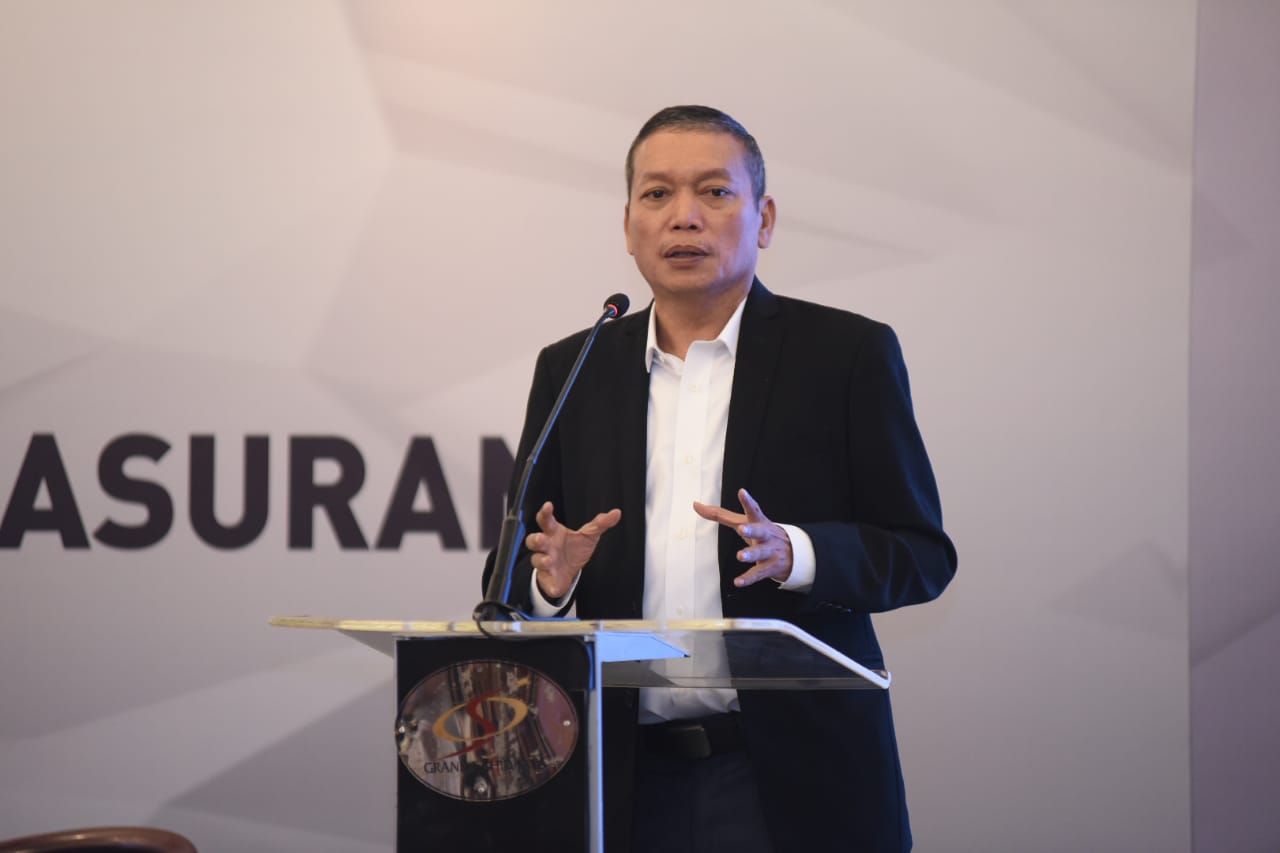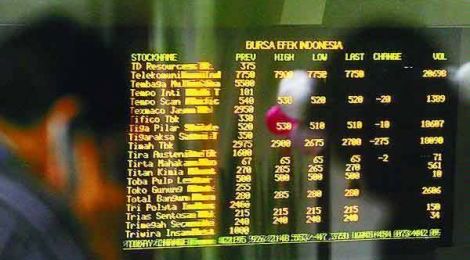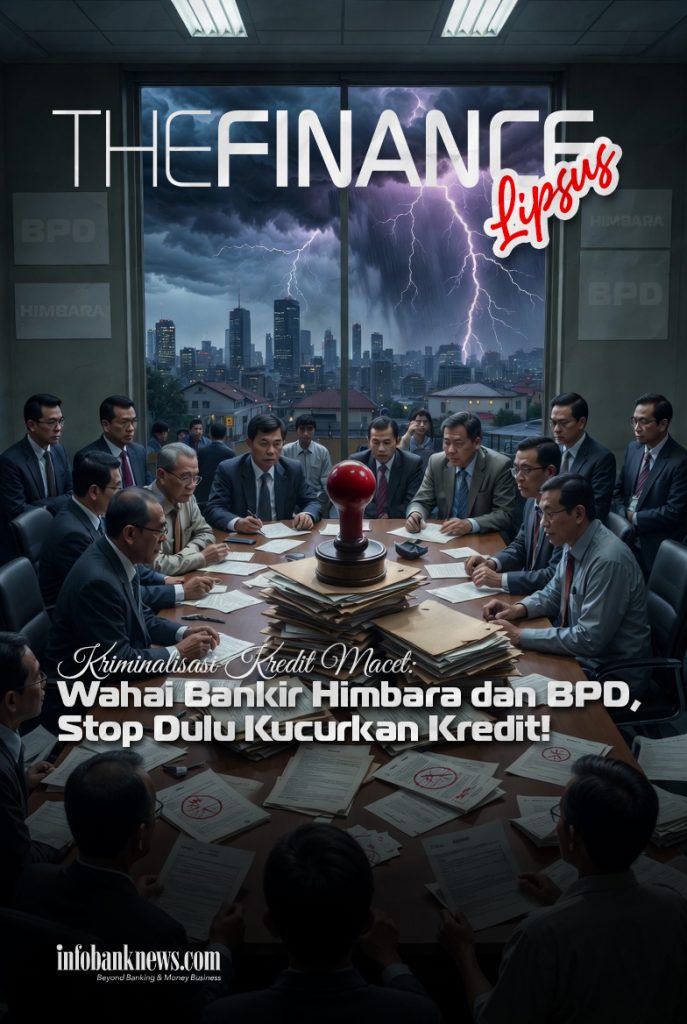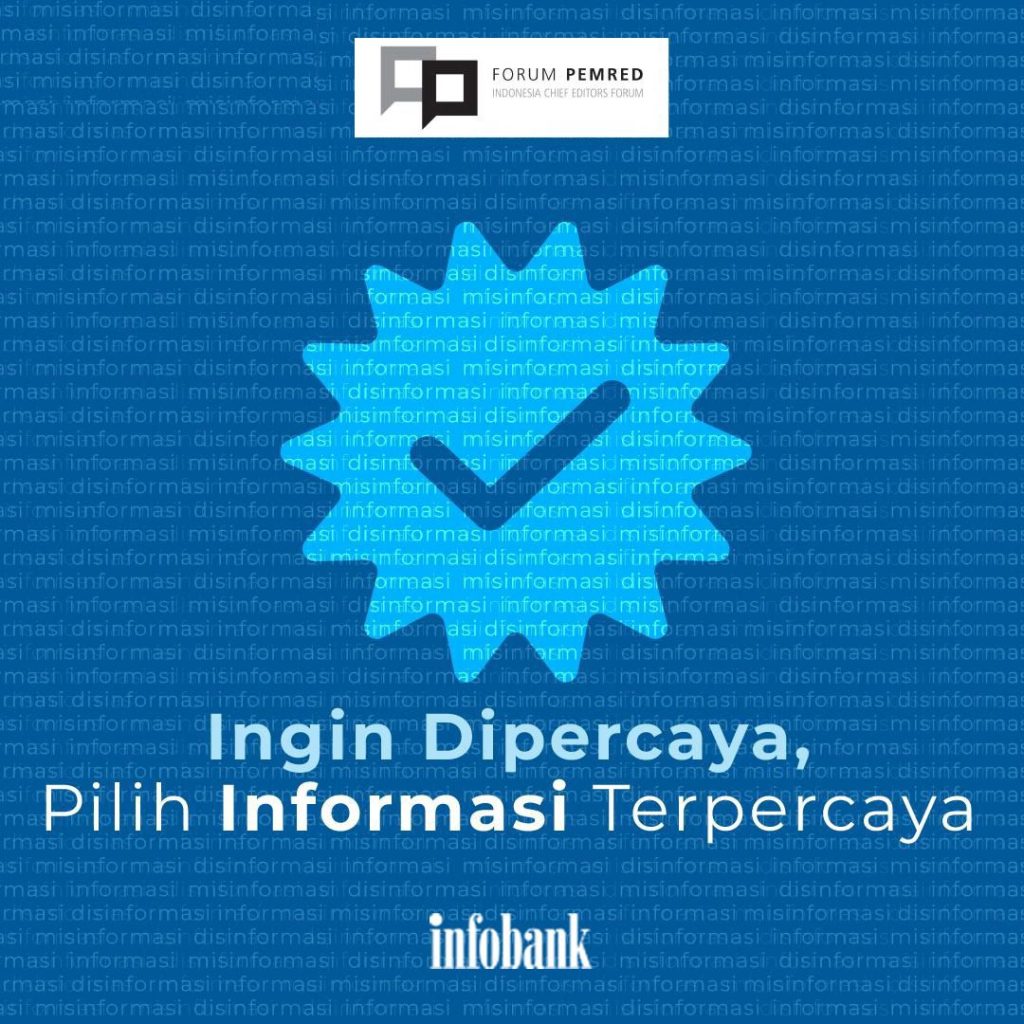Financial Sector Development and Strengthening (FSDS) Bill: That’s Right! Sharia Bank Spin-off Is Conducted If Sharia Assets Reach 50% of the Parent’s Assets
By Eko B. Supriyanto, Chairman of Infobank Institute
A forced spin-off will lead to complications. The middle way, a spin-off can be implemented if the sharia business unit (SBU) market share has reached 50% of its parent. This is an important note for the P2SK bill on the sharia path.
Jakarta – Avoiding risk is far better than pursuing benefits. Pursuing market share is no longer forcing the Sharia Business Unit (SBU) to be forced to spin-off. Let SBU expand parallel with market demand conditions. Don’t be forced by using political approach without looking at the facts on the ground.
This sentence is suitable to describe the conditions ahead of the dead line for the spin-off of the sharia business unit at the end of 2023. Don’t force yourself to pick up potential. But, do not step on the earth – which is usually described by consultants. The banking business is a real world full of capital and regulation. Don’t be forced. Let sharia banking “tree-ripe”, not “incubated”.
That the market share of sharia banking, which is currently still at 6.7%, needs to be increased, but a spin-off without taking into account the amount of assets — this is not the best way to increase market share at this moment.
Not only said “the main thing”, whereas the challenges ahead are not about the spin-offs. But, how to make quality sharia banking. Solid. Why having small sharia banks that lack capital and of course “poor” technology infrastructure and also the HR matters.
Instead of forcing our self, which may find many dangers, because there are many important things that describe SBU much better than forcing sharia business unit to become a Sharia Business Bank (SBB). In countries where sharia banking is bigger than Indonesia, they are still allowing sharia business.
Therefore, the Bill of the Financial Sector Development and Strengthening (FSDS) – which concerns sharia is very important. Because, in Law No. 21 of 2008 article 68 concerning Sharia Banking states:
“In the conventional commercial bank which has sharia business unit (SBU) which its asset value has reached 50% of its parent bank total assets, or fifteen years since the enactment of this Law, accordingly, that the said conventional bank is obligated to separate the SBU into a sharia bank”. Then, in PBI 11/10/PBI/2009 it is emphasized that conventional banks that do not carry out spin-offs in accordance with the provisions will be subject to the revocation of the sharia business unit.
Tough. After 14 years to 15 years, it turns out that SBU is much more profitable, better in many ways. There are many reasons why SBU can provide better ways to improve the quality of sharia banking. (See: Sharia Bank Spin-Off Is Not Always the Best Way/Infobank Edition March 2022).
Why SBU Is Better
According to the Infobank Institute, there are several things that SBU is more profitable. One, the capital resilience is stronger with the consolidation of its parent bank. Capital is important to deal with banking turmoil. The spin-off move only produces banks with limited capital. Currently there are 21 SBU which are in small size. This is clearly contrary to banking consolidation with the Core Capital Bank Group (CCBG) which is at least Rp6 trillion.
Two, sides of the business model can provide a wider service capacity with a variety of products to the community. Imagine. If SBU becomes SBB, it is of course limited and requires a different level of investment than before.
Three, the service level and pricing model of the SBU is equivalent to the parent bank, thus that customers continue to experience the same standards. The spin-off will have an impact on the service level and pricing model. It is certain that the pricing will be more expensive due to the aspect of the source of funds.
Four, the use of a broad network from the parent will accelerate sharia financial education and literacy with the support and coverage of the parent bank. For example, promotion and branding programs are of course still with its parent. More importantly, SBU will be able to better educate rational customers who can support sharia banking literacy and education.
Five, regarding liquidity, of course, SBU currently in the industry can obtain liquidity from its parent. Moreover, it can become counterparty to SBB — up to CCBG 3. Meanwhile, after the spin-off, the majority of SBB resulting from the spin-off will be classified as CCBG 1 (capital below Rp6 trillion), surely this will cause difficulties in obtaining funding (liquidity).
Six, with support from the parent bank, SBU has proven to accelerate the SBU growth, especially in the aspects of IT infrastructure, Human Resources (HR), branch and ATM networks and parent bank expertise. Certainly this will be more difficult if forced to become a SBB.
Seven, from the shareholders’ perspective why invest in two separate entities in the same industry. Moreover, investors always look at the size of business of SBB from the spin-off is small.
Eight, from a business perspective or financial performance achievement. Indeed, SBU for the last five years has produced better quality growth and financial ratios. Of course it is not easy to maintain this quality of performance.
Nine, the spin-off is contrary to the consolidation that was echoed by the Financial Services Authority (OJK) to strengthen capital and not increase the number of banks. This will create its own supervisory problems in the midst of changes in the banking market and more severe challenges due to technological changes.
Ten, Best Practice Benchmarks Countries with high sharia banking market share still allow SBB to continue running their SBU (windows), without any Spin-Off obligations. In fact, the performance and market share of the sharia finance industry can continue to grow rapidly and sound.
FSDS Bill on Spin-Off Gives the Best Way
The impact of the COVID-19 Pandemic and the global economic crisis puts banks on their toes. It doesn’t actually make the toes more “fragile” because of the spin-off of 21 SBU which capital size is “poor”.
So if the target is only to increase market share, perhaps increasing the number of sharia banks from spin-offs is not one of the ways. However, as noted by the Infobank Institute above, SBU is actually able to increase market share faster (14%) than SBB and its parent (5%).
In short, sharia business units are much faster growing and of higher quality than sharia banks. These figures show that the change to become a sharia bank does not automatically improve performance. Thus, spin-off is not something to be silent on at this time.
As a matter of fact, all sharia business doers who are members of Asbisindo (Indonesian Sharia Bank Association) also agree that if the spin-off is carried out in 2023 it will have an impact on the counter-productivity of its main target – namely the growth and reinforcement of sharia banking in Indonesia.
For this reason, sharia banking doers have given a thick line about this spin-off. In the FSDS Bill that is being discussed, especially regarding the spin-off article, it is stated; “In terms of conventional commercial bank owns a SBU which its asset value has reached at least 50% (fifty percent) of the total assets of its parent bank, the conventional commercial bank is required to do a Separation. Of SBU becomes a Sharia Commercial Bank,”.
The spin-off will still be carried out, but it does not depend on the 2023 dead line as stated in Law Number 21 of 2008 concerning Sharia Banking. The article affirmed by the FSDS Bill provides support for sharia banking to grow normally in accordance with market conditions. And, of course, answer the ten things that the Infobank Institute described from the start.
That’s Right! Sharia bank spin-off is carried out if the sharia assets are at least 50% of its parent. Why have many banks if the risk ahead is more severe. Bank business, including sharia banks, must also be supported by capital strength.
The FSDS bill regarding the spin-off article actually encourages and strengthens SBU to grow with the support of its parent. This is the best and widest way for sharia banking to grow faster, with quality and rational. (*)













